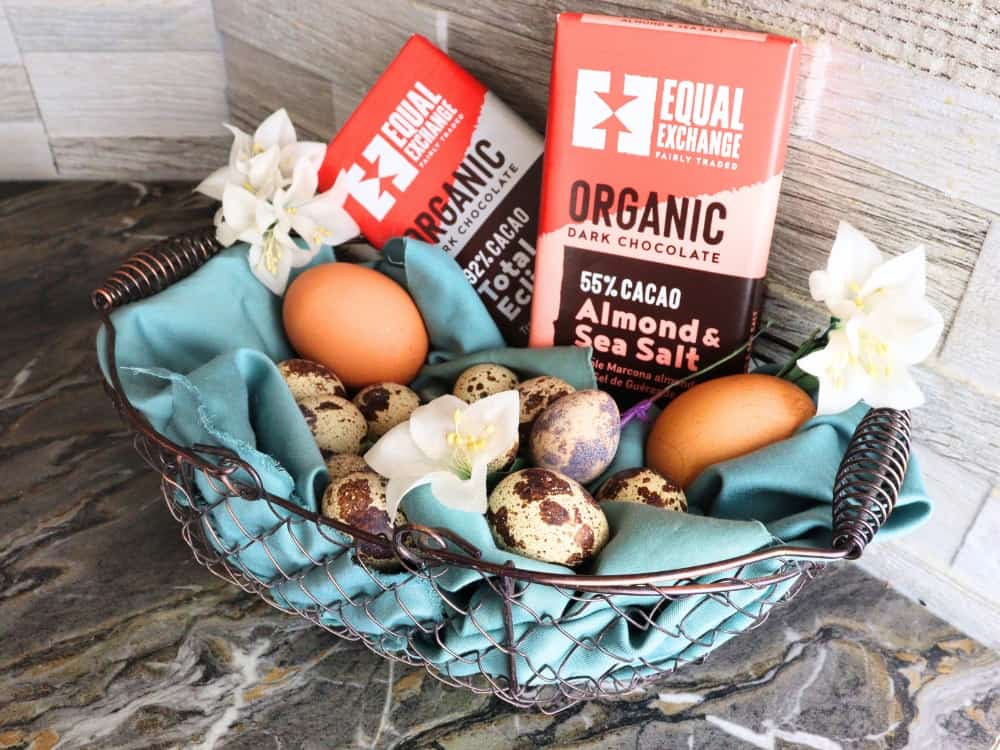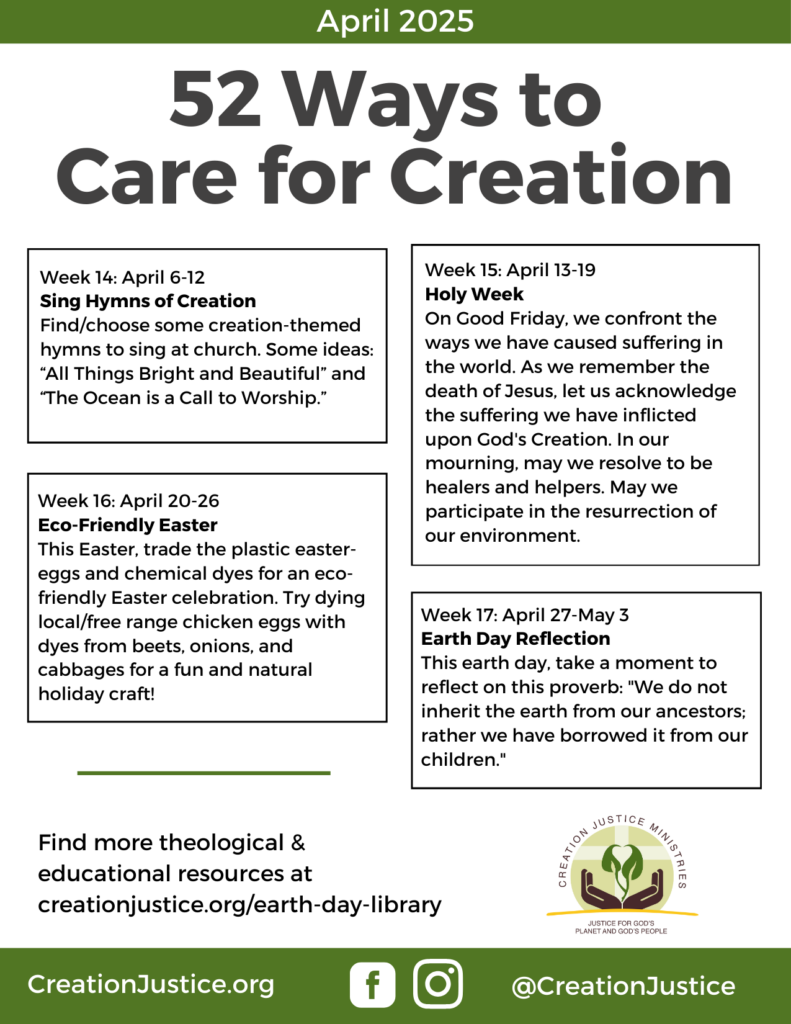
If you enjoy Easter traditions but not the unnecessary waste, there are many small changes you can make to have an eco-friendlier Easter.
- Gift memories over objects – keep true to the meaning of holidays by taking the focus off gifts and putting the focus on making memories. This is a great time to show kids that the gift of a fun experience outweighs the fleeting joys of a material object. Create less waste by opting out of a seasonal toy that will soon end up in the trash. Instead, take a day trip with the family to the park, the zoo, or the aquarium. Sign up for a fun activity like painting pottery or playing mini golf. The possibilities are endless.
- Use natural dyes for your Easter eggs – this activity is a classic, but did you know you can dye Easter eggs using foods already in your kitchen? Ingredients like purple cabbage, yellow onion, beet juice, and turmeric can create a rainbow of colors for sustainable crafts.
- Choose eco-friendly eggs for the hunt – not willing to give up the good old-fashioned Easter egg hunt? There are a few different ways to make an egg hunt more eco-friendly. First things first, stop buying new bags of hollow plastic eggs each year.
- Swap out the plastic grass – another way to make an Easter egg hunt more eco-friendly is to swap out the decorative plastic grass that lines Easter baskets and gifts. You can shred up old newspapers, magazines, or wrapping paper. Recycle them after the holidays are finished or keep them in the basket for next year. If you don’t prefer the DIY route, consider investing in reusable recycled and recyclable Easter paper.
- Reuse, repurchase, or repurpose an Easter basket – instead of buying a cheap plastic basket every year, create your own Easter basket! Head over to the thrift shop and pick up a second-hand Easter basket. Use it as is or personalize it with your own eco-friendly decorations.
- Compost your eggshells – if you are going to use real eggs for your Easter celebrations, make sure to compost all your eggshells. Eggshells contain nutrients that make for a great addition to compost, soil, and plants.
- Buy local, organic, or free-range eggs – hen shopping for eggs to dye during Easter celebrations, it can be tempting to reach for the cheapest option. But this is another great opportunity to make Easter more sustainable. Not only will you be supporting local farmers and their ethical practices, but free-range organic eggs are more nutritious and better for the planet.
- Opt for organic or fair-trade chocolate – don’t worry; you don’t have to ditch the Easter chocolate. Thankfully for all the chocoholics out there, there are many brands dedicated to making sustainable chocolate products! When choosing eco-friendly Easter chocolate, it is important to look for a Fair Trade Certified brand. This ensures all cocoa has been ethically sourced, meaning workers and communities have not been exploited, and cocoa producers earn a living wage.
- Create unique eco-friendly treats – if your family doesn’t have a sweet tooth, there are many other eco-friendly treats that can be fun for the whole family. Instead of heavily packaged toys and chocolate, create fun and edible Easter-themed snacks. Set fruits, vegetables, and nuts around the table and let imaginations run wild.
- Buy second-hand festive Easter outfits – if the urge to buy pastel-colored outfits for Easter photos is strong, don’t worry! There is an eco-friendly way to update your wardrobe around festive occasions. There are so many online consignment shops that are dedicated to creating a circular fashion economy while providing great selections of quality goods.

Resources List
- What can be recycled at Publix? Foam egg cartons, clean foam take-out trays, clean foam cups, plastic wraps, and more.
- Recycle at Your Local Staples Store!
- Learn more about Teracycle
- City of Winston – CityLink 311
- Recycling questions
- Composting NC Extension Agency
- Water keepers and Climate Solutions – Yadkin River Keeper; Piedmont Land Conservancy; Earth Justice; Project Drawdown; Blessed Tomorrow
Books & Articles
- Salt, Lemons, Vinegar, and Baking Soda – by Shea Zukowski
- Cooler Smarter: Practical Steps for Low-Carbon Living – Union of Concerned Scientists
- Establishing a Bee Lawn – Better Homes and Gardens
- How to Design and Install a Bee Lawn – YouTube
- Calculate Your Carbon Footprint – The Nature Conservancy
- Why Doctors Are Prescribing Nature Walks – Time Magazine
- Prayers for the Environment